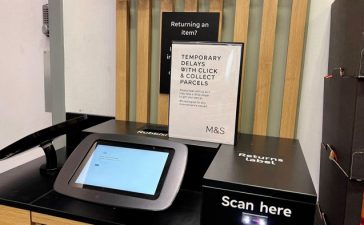In an interaction with Economic Times in March (before the silent period ahead of the fourth quarter results), IndiGo chief financial officer Gaurav Negi said the airline’s fleet expansion plan, relationship with lessors, and robust hub and spoke model of its network will keep it ahead of its peers.
“It’s good that India is seeing a rise of well-capitalised airlines which will help the sector, but IndiGo’s inherent strength of a strong network (and) on-time performance will be hard to beat,” Negi said.
The airline plans to increase its fleet size to 350 aircraft by the end of FY24, which will also see it expanding its international footprint to 30%.
Negi said the third quarter of FY23 was an inflection point for the airline as its daily flight had grown beyond what it operated before the Covid-19 pandemic. “In a sense, it gave us confidence that while we had to completely reboot the system, the company showed its ability, remaining true to its strength of on-time performance, low turnaround times, and cost structure,” he said.
The airline currently operates around 1,800 flights per day.
The aviation sector in India is witnessing consolidation with Tata Group initiating merger of all its four airlines under Air India. The group will operate with two airline brands, Air India and Air India Express.Tatas have started revamping the airline with new aircraft order, refurbishing seats and increasing network.
Last month, Aloke Singh, CEO of Air India Express, had said a substantial part of the new aircraft order of 470 aircraft will be for the low-cost airline.
Akasa Air, which is funded by Rakesh Jhunjhunwala family, is also growing in size and is soon to place an order of more than 150 aircraft.
IndiGo is unfazed. It expects significant advantage in cost terms from the government’s new formula of calculating jet fuel price and reduction of VAT in various states. India has established a new mechanism to price jet fuel for domestic airlines, which will bring more parity between global crude price and domestic price. “We are already seeing the advantage of that and over a large fleet size the advantage is more significant,” Negi said.
The airline also expects advantage in terms of lease rates as it has established its credit worthiness during Covid-19 when it didn’t default on any lease repayments. Lease rates have risen sharply due to hike in interest rates by central banks. While the airline has around 40 aircraft grounded now due to engine shortage, once it resolves, it plans to utilise its aircraft for more than 13 hours.
IndiGo’s attempt of rebuilding its balance sheet was almost complete now as it now has a comfortable cash reserve, which got depleted during two years of pandemic.
IndiGo had Rs 10,612.50 crore of free cash as of the end of the third quarter, which was 36% higher than the corresponding period last year.
It plans to use the cash to build capacity and improve its digital infrastructure, which Negi said will keep the airline ahead for the next decade. For instance, the company has deployed sensor-based technology to scan life vests in aircraft, which has brought down inspection time by 90%.
“The growth rate in our second decade will be significantly higher than what it has been during the first decade. We need to prepare for that,” he said.
Analysts said the company’s focus on capacity building, investment in human capital and digital initiatives will be big business moats against its competitors.











